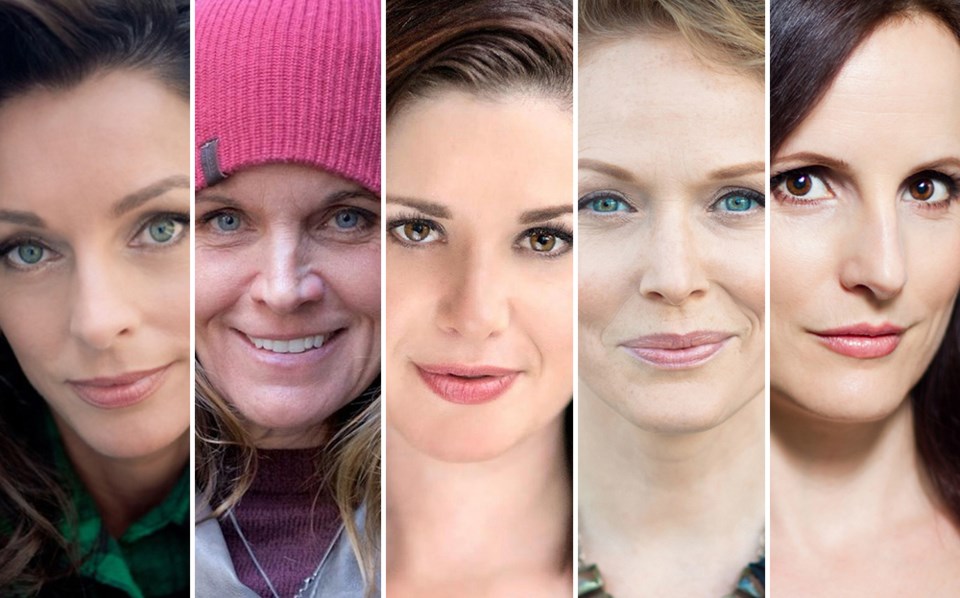Warning: This article contains descriptions of sexual harassment and assault.
It’s not just Harvey Weinstein, and it’s not just Hollywood: The Vancouver film and television industry has its own history of sexual harassment and abuse to confront.
In the wake of the Weinstein scandal – and as women across the world confirm they have been victims of harassment or abuse by using the #metoo hashtag on social media – performers and insiders are speaking out about their experiences and calling for industry-wide change.
Last week, Reel People interviewed five Vancouver screen scene veterans – actresses Chelah Horsdal, Sarah Deakins, and Enid-Raye Adams, writer-director Jacquie Gould, and actress/director/acting school owner Lisa Ovies – who report experiencing sexual harassment or abuse in the local industry.
The five actresses and insiders were unanimous when asked if the local film and television community has a problem with sexual harassment and abuse: yes it does, and it is “a low-grade pain that’s always there,” says Sarah Deakins. “You’re just constantly dealing with these things that you shouldn’t have to be dealing with at work.”
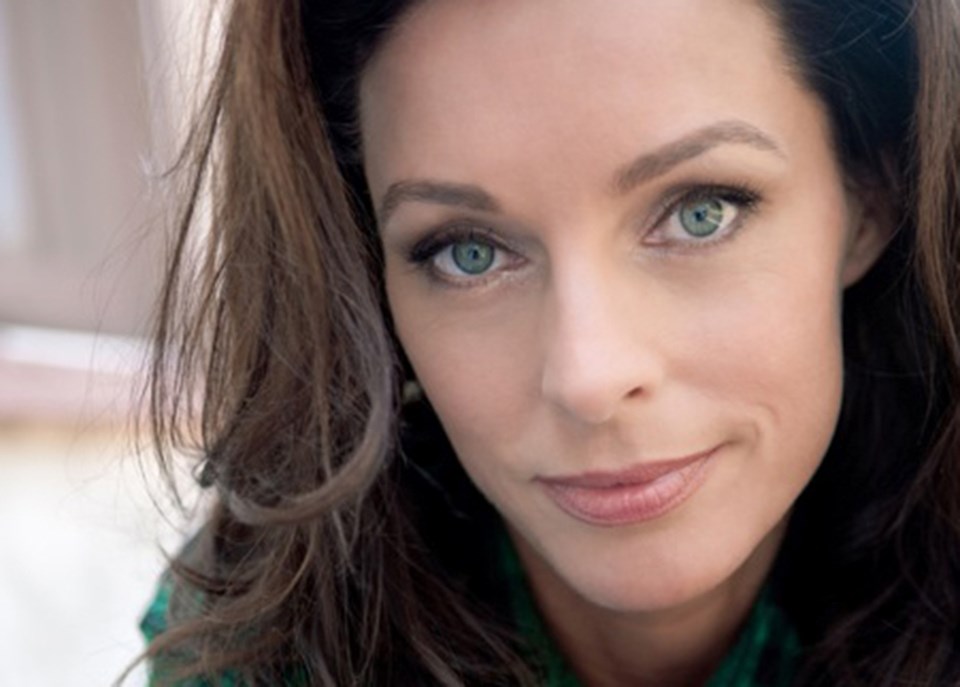
'It was just this constant barrage'
Women in film and television face an unending stream of sexual comments and inappropriate jokes, according to those interviewed for this article (note: only women responded to Reel People’s public call for on-the-record sexual harassment and abuse stories).
They deal with co-workers watching graphic porn on iPhones right next to them on set. They deal with groping, leering, teasing, smacking and unwanted propositioning in trailers, at wrap parties, electronically, and in acting classes. They deal with rape.
Deakins recounts the time she’d booked a guest role on a Vancouver-shot television series, and the married male star of the show “made it clear he wanted to have an affair with me, and I said no many times in very empathetic ways,” says Deakins.
“It was just this constant barrage of, ‘What would you do if I wasn’t married? We would totally be together if I was single, right?’ He was really needing me to say, basically, ‘Yes, I want to fuck you.’”
Eventually, during a quiet moment between takes, Deakins told the actor that she “didn’t want to be someone’s dirty little secret.” She thought this would be a teachable moment that would end the harassment and compel this man to change his behaviour, and “of course, I never came back to that show,” she says. “I was supposed to be a recurring character, an ongoing nemesis for that actor, and I never came back.”
“Could I have marched into the production manager’s office and said, ‘Your star is harassing me, he’s trying to have an affair with me and I shouldn’t have to deal with this at work? Of course,” says Deakins.
But she – like most of the other women interviewed for this article – believed that if she took any action, she’d never work again. “And that’s why I didn’t do it, and that’s the truth. And I should have been braver.”
It’s difficult to calculate exactly how widespread sexual harassment and abuse are in the Vancouver film and television industry, because of shortfalls in reporting, says Lori Stewart, the health and safety performer advocate for the Union of British Columbia Performers.
“How widespread it is, and how widespread the reporting are, are two completely different things,” says Stewart. “I have a feeling it used to be worse than what it is, but I know that it still goes on and often doesn’t get reported. Quite frankly, we very rarely hear about anything.”
And when UBCP does receive a call from a member that something horrible has happened, Stewart must tell them that the harassment has to be reported directly to the employer – which in the case of the film and television industry typically means the studios and productions themselves.
Despite the fact that all of the productions have zero tolerance policies, “as soon as people hear that they have to report it to the employer, it often stops them dead in their tracks, with good reason,” says Stewart. They worry that they’re going to be blacklisted, or that they’re going to run into the perpetrators on another project down the line.
“You have to have somebody pretty strong in their convictions to see this stuff through and, quite frankly, most people, because it’s so awful, they try and just move on.”
Compounding the heartache is the fact that employers aren’t required to report back to the union after conducting their own investigations.
“They will not tell the union what the discipline was, and quite often they won’t even tell the person who was assaulted or harassed,” says Stewart. “People are left hanging. It’s a terrible situation.”
But, adds Stewart, “coming forward is the only way it’s going to stop. It’s the only way we can bring enough attention to it, and just maybe, it’ll make those people think twice about making those advances in the first place or maybe make the employers pull up their socks and actually enforce their zero tolerance policies.”
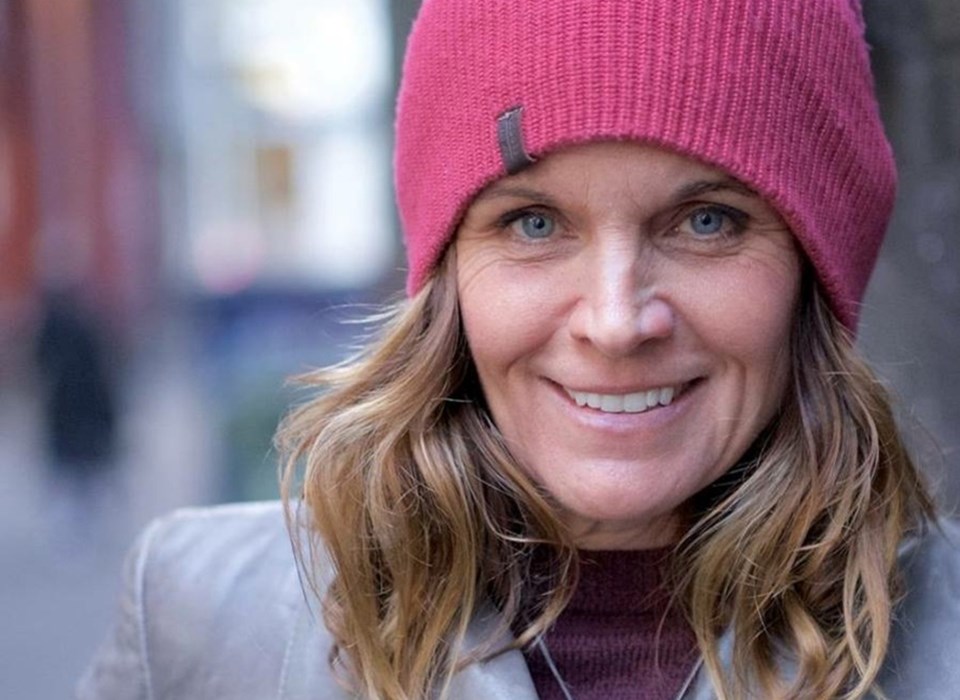
'He's been doing this for 27 years ... Nothing happens'
Jacquie Gould has seen few improvements since she entered the industry as a production assistant nearly 30 years ago.
“It’s better only in the fact that people are talking about it, but it’s still difficult for women, especially young women, to say anything and move forward, because you have all of these fears,” says the screenwriter and director.
Gould was a training assistant director on a B.C.-shot feature film nearly 30 years ago when one of the film’s stars assaulted her in front of witnesses after sexually harassing her for several days.
“He takes a forearm, shoves it right under my throat, pushes me up against the wall, puts his hand under my shirt and squeezes my breast,” says Gould, who remembers hitting the actor in the face with a stack of call sheets and running away screaming.
The actor was fired from the film, but no one in the production ever followed up with Gould.
“It was like it had never happened,” says Gould. “I was just back on set, and I just had to shut up and grin and bear it.”
Recently, Gould learned that the same actor had been “fired from another show for doing exactly the same thing 27 years later.
“He’s been doing this for 27 years. He keeps getting hired, and he doesn’t get any charges pressed against him. Nothing happens.”
Which is why Gould says she decided to share her story with Reel People. “I was so angry.”
“Bad behaviour is rewarded in our industry,” notes Gould. “There is a lot of leeway for improper behaviour, and it’s driven by hyper-creative types and people who are coddled for their bad behaviour; as long as they make a multi-million-dollar show a hit, it doesn’t matter how they act. That’s the part that has to change. We have to call out bad behaviour.”
Bad behaviour isn’t just reserved for sets. It rears its ugliness at wrap parties – “I listened to the [Weinstein] tape and I heard almost every late-night drunken conversation I’ve had with a male director or producer at a wrap party,” says Deakins – in meetings and during photo shoots.
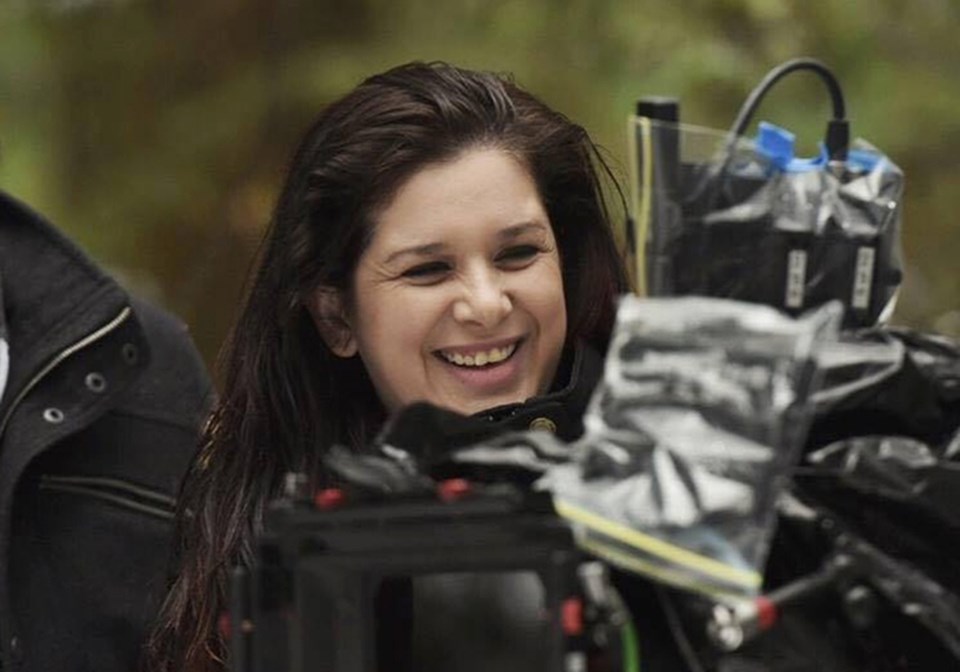
‘If I’m not sleeping with you, I’m not getting any opportunity'
The culture of harassment and abuse also extends to acting schools.
Lisa Ovies – now an actress, filmmaker, and owner of an acting school herself – was days away from graduation when “a person that was supposed to be a leader and a role model made a lot of very inappropriate sexual advances towards me.”
When Ovies flat-out refused, “they denied me a huge opportunity in the final area of my schooling as retribution, and I remember feeling so shocked and angry, but at the same time I remember thinking, ‘Holy fuck, it’s real. Welcome to Hollywood.’
“I hadn’t even graduated from school, I’d never made any projects, and I already got it: ‘If I’m not sleeping with you, I’m not getting any opportunity.’”
Which is why Ovies – who mentors 25 young people through her acting school – has made self-empowerment a cornerstone of her curriculum. She wants her students to know that no one person can ruin their careers, and regularly emphasizes to her students that it’s OK to say no.
“That is a huge word I try to give people. I have the word ‘no’ written in my bedroom on the wall.”
Ovies describes how, last year, she had to forcefully say no to a local director who was sexually harassing her on social media.
“We’ve had that word taken away from us, and I want to take it back, and to give it power.”
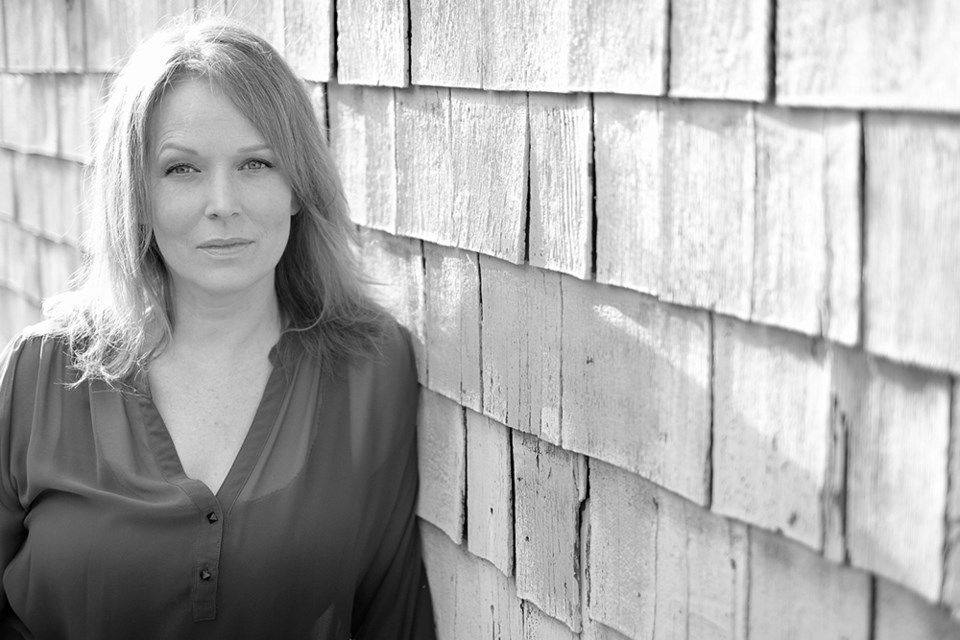
'It is epidemic ... it spreads throughout our entire industry'
So, how did this become an issue in Vancouver?
The Vancouver industry has a problem because the industry in general has a problem, says Chelah Horsdal.
“I think it is epidemic, and I think it spreads throughout our entire industry and is not just exclusive to here,” says Horsdal. “It’s this weird confluence of art and commerce that comes together in the most violent way.”
It’s also connected to deep-seated societal issues like rape culture, the objectification and sexualization of women, and toxic masculinity, according to Horsdal.
“I think the reasons have to do with the ways that we raise men and women, [and] the way that we raise men to wave the flag of masculinity and to look at women as property,” says Horsdal. “That’s everywhere.”
Horsdal blogged about sexual harassment and violence in the industry several years ago, after working on an indie film where she had to stand up to a movie star who preyed on the film’s female cast and crew members.
Says Horsdal: “He had grabbed the hand of one young woman and pressed it up against his penis. He had reached out and tried to cup the genitals of another young woman. He was talking about sexual fantasies and sexual experiences.”
Most of the women were under the age of 25, according to Horsdal. “They were young people in film trying to get a start, so they were in a position of not feeling as though they had permission to say no,” says Horsdal.
She detailed what went down in a widely circulated blog post entitled ‘How ’Bout Don’t Touch My Lady Bits?’
“I was not prepared for the number of people who reached out after that post,” says Horsdal, who is meeting with UBCP this week to discuss next steps in the wake of the Weinstein scandal.
“When I think about my career, and I think about the number of times where I’ve been in situations where someone has been inappropriate with me, they are so numerous that they all become one big blur of just the way that things are.”
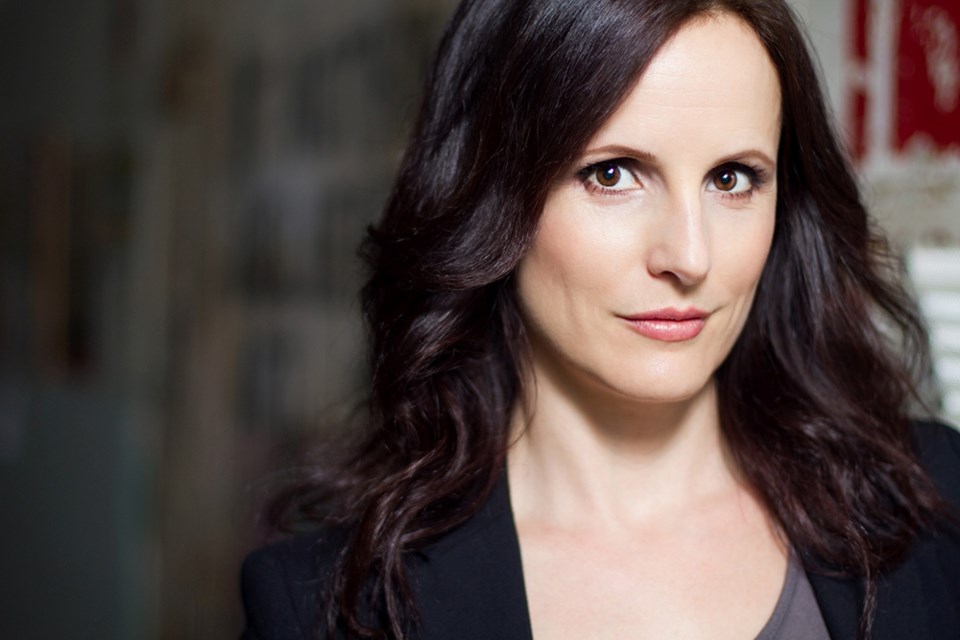
'I’ve been told by directors that my hips were too big ... I was not rapeable enough'
Enid-Raye Adams spent years trying to build her acting career in the midst of this creeping sexual harassment and sexism – while also burdened with experiences and violations that extend far into her past.
“There are not enough trigger warnings to offset the innumerable ways I’ve been violated sexually, physically and psychologically in my life,” says Adams.
“Sometimes I think as women we categorize these violations in our mind to be able to heal from the seemingly bigger ones, just in order to function – and because some of these workplace violations, for me anyway, fell into a lesser category in my mind, I’m not sure I realized until just this week the cumulative impact they’ve had on me over the years.”
Those workplace violations are numerous.
“I’ve been told by directors that my hips were too big to play one part, and I was not rapeable enough to play the other,” says Adams. “I’ve had my ass smacked on set by a colleague.”
On one occasion, Adams says an actor “jokingly put his hand behind my head as if to motion me to give him a blow job, and a lot of these times I joke it off in the moment, because of the shit-storm that I know would rain down on me if I made a big deal out of it.”
Adams reached a breaking point earlier this year. She’d spent several days preparing for an audition, and “it was just so phenomenal and I was so proud of my work,” says Adams.
But the feedback she received after the audition had nothing to do with her work. “It was about my body,” she says. “It was so surprising because that’s not what the character was about. It was a shock. I felt like I had been slapped in the face: Even after my well over 20-year history with this kind of thing, I didn’t see it coming.
“Too often for women, our ability doesn’t seem to matter,” Adams continues. “Too often we won’t be given the job unless someone finds us attractive enough and fuckable enough to give us the opportunity, and I really think there isn’t just a glass ceiling for women. I think we’re crammed into a little glass box and we’re expected to stay there until someone lets us out to play.”
Which is why, earlier this year, Adams nearly walked away from her career altogether.
“I went, ‘What else can I do? This is an abusive industry for women. I can’t do it anymore. I love my work, but the amount of abuse and nonsense I need to sift through to get to my work, it’s not worth it.’”
But Adams ultimately decided to stay, opting to go even deeper into her work, to join UBCP’s women’s committee and to run for a position on UBCP’s executive board.
“I chose not to be denied a right to show up in my own skin, in my own field, with my abilities and skills that I have honed,” says Adams. “I refuse to be sidelined in the narrative of my own story. I have a voice and I’m going to use it.”
#metoo
Others are joining the chorus. On Sunday night, social media lit up with the #metoo hashtag, which individuals posted to identify themselves as survivors of sexual harassment and assault.
The #metoo hashtag has its detractors, from the perspective that women shouldn't have to out themselves. But Horsdal believes the torrent of revelations means the industry is at a turning point.
“In the darkness and devastation of this week, I’m more hopeful than I’ve ever been in our business,” she says. “All of this stuff is being pulled out into the light, and I really, honestly believe that there’s an opportunity for us to change, and that we will.”
If you have experienced sexual harassment or sexual violence or would like to support someone who has, help is available at Vancouver Rape Relief & Women’s Shelter (604.872.8212) or VictimLinkBC (1.800.563.0808).
In their own words
Sarah Deakins
“I don’t know Harvey Weinstein. I’ve never worked with Harvey Weinstein. I don’t know all of the details, but I have heard that tape, and I know I have heard that conversation many times, where they’re just constantly negotiating. ‘What about this? What about this?’ You just have to say no 50,000 different ways, politely, without hurting their feelings. Without losing your job. That is the part that’s so unfair.”
“[Predators] put you in a position where it’s really difficult for you to feel like you can keep your job and say something. I have had numerous times with directors or producers where they’re, ‘Oh, we’re all going to the wrap party, we’ll come pick you up.’ Great – and just the producer shows up, in a limo. ‘We’re just going to dinner; everybody bailed out.’ What? Now we’re on a date.
“That stuff happens all of the time, and then you have to negotiate that. As a young woman, you have to go, ‘Okay, I guess I’m going on a private dinner with this guy, and he’s thinking maybe he’s going to convince me to have sex with him, I’m sure, and I have to deal with that all night.’
“Now, I don’t have to, I could say, ‘This isn’t what I thought it would be, I’m going to stay home, I don’t want to go out with you.’ Yes, of course you could say that. Of course you could. You think you’d ever work for that producer again? No.”
Jacquie Gould
“I don’t think rules and all of these training manuals are working. We get handed these thick training manuals and harassment manuals when you sign onto a show. No one reads them.
“I think what has to happen is, when young men come into the workforce, IATSE [International Alliance of Theatrical Stage Employees union], the Directors Guild, I think they have to sit through a training day led by women and men about how to treat each other on a film set, and what is acceptable and what’s not acceptable and what comments and what things that they could do that would lead them to being fired. There’s no second chance. Zero tolerance.”
Lisa Ovies
“I understand why people are open [to share their stories], and also why people aren’t, and I support all of what people go through, but I think if you have the opportunity to speak up, and especially because I influence so many young women, and I can tell them, ‘Actually, I stood up to this person, and it scared the shit out of me, and it still scares me today, but I wouldn’t expect you to do any less, and I’d have your back for it.’ That’s the message I want to get out.”
“I think for a person who has grown up her whole life wanting to be in film, the fact that I wasn’t surprised that someone who was supposed to be my mentor on Day 1 of my career was harassing me says that it’s been normalized.
“If you were a lawyer and someone said to you, ‘Hey, I’m going to get you in this firm but you have to suck my dick first,’ the world would explode. But in film, you aren’t in control of your career the way you are in another career. There are so many things that hinge on who you know and that right moment and that opportunity that I think people are taking advantage of that vulnerability.”
Chelah Horsdal
“Someone pointed out this week the phrase ‘violence against women,’ and I stopped and thought about it: Why are women the subject of the act? Why is it ‘violence against women?’ It again puts us in the position of this being our responsibility on our shoulders. Why isn’t it ‘men committing violence?’
“Even in the subtlety of that, we take ownership of that as women, and it is considered, not normal, but, ‘Oh, this is the phrase that we use to describe it.’ It’s not about men doing something. It’s about women being on the receiving end of it. That’s everywhere, and that’s not just film.
“It seems overwhelming right now because we’re at the beginning and there’s all this information and we have to now figure out how to wade through and also distinguish the issues, begin to look at creating protections for students, be able to figure out a way of teaching and empowering young women and men what is OK and isn’t OK, because we have been conditioned to believe that a lot of things that aren’t OK are. That’s systematic.”
Enid-Raye Adams
“We unequivocally and absolutely need more women in power. We need more female roles. We need more roles so that women of colour get more roles. We need women directors, not as an afterthought, that productions need to plug in because they have to meet some criteria, but because women are fucking talented. We need more women in there. We need more training.
“When I start a job, I’m given a big, long contract, and part of the contract is the start pack. It goes over policies. They cover all this stuff in the policies, but the question is, when it happens, and when you go to them, are studios really there to support you? It’s up to the job. It’s up to the employer. Are they actually going to walk the walk?
“Because like we saw with Harvey Weinstein and now with the top executive at Amazon [Roy Price, who was suspended by Amazon last week after sexual assault allegations https://www.vanityfair.com/hollywood/2017/10/roy-price-amazon-sexual-harassment-allegations], this stuff has been reported for a long time. They knew about this. They knew about this, so why didn’t they do anything? We need more women, we need training, and we need accountability, and most especially, we need the forward-thinking men among us, and there are so many, to step up and say, ‘I saw this and it’s not okay.’
“What’s different now is that there’s no panic in me anymore. I don’t own the shame. I own the story, and I’m going to share it and I feel ready to make a positive impact by sharing my truth. I don’t feel scared about it anymore.”
